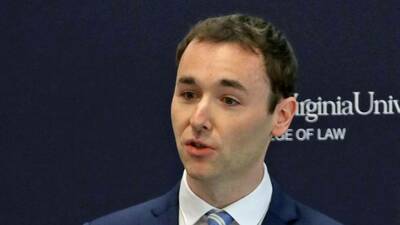Professor Alexander “Sandy” Steel receives a Leverhulme Major Research Fellowship

Professor Alexander “Sandy” Steel, visiting global professor of law at the Notre Dame London Law Programme, received a Leverhulme Major Research Fellowship. The grant will enable Steel to focus for three years on a project about the liability of the state for the wrongdoing of public officials. These prestigious fellowships are awarded to well-established, distinguished researchers in the humanities and social sciences to complete a piece of original research.
In his project, “A Theory of State Liability,” Steel aims to answer the following: “What principles should determine the existence and scope of state liability to compensate, make restitution, be subject to punitive money awards and injunctive relief, at the suit of private individuals? Much ink has already been spilled on this subject, but my aim is to examine the issues from a more philosophical and theoretical perspective.”
Throughout the project, Steel will analyze to what extent ordinary principles of private law apply without modification to public authorities. He will explore whether there is a non-instrumentalist basis for any immunities from liability of public authorities and, if the basis is instrumentalist, what would be the appropriate normative resolution of empirical uncertainty about the basis of such immunities. He will also discuss the extent to which public officials should be personally liable for wrongs and the extent to which the state should be liable for non-wrongs and should be able bring private law claims.
Steel is professor of law and philosophy of law in the Faculty of Law at Oxford and Lee Shau Kee's Sir Man Kam Lo Fellow in Law at Wadham College. He has held visiting appointments at the University of Hong Kong, the National University of Singapore, the University of Münster, and New York University. As a visiting professor at Notre Dame, he teaches Jurisprudence.
He is interested in philosophical and doctrinal questions about private law. He has written mainly about torts and private law theory, but also maintains an interest in general jurisprudence.
His work has been cited by the Supreme Court of the United Kingdom, the Supreme Court of Canada, and the High Court of Australia.
Read more about the award here.